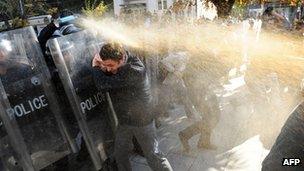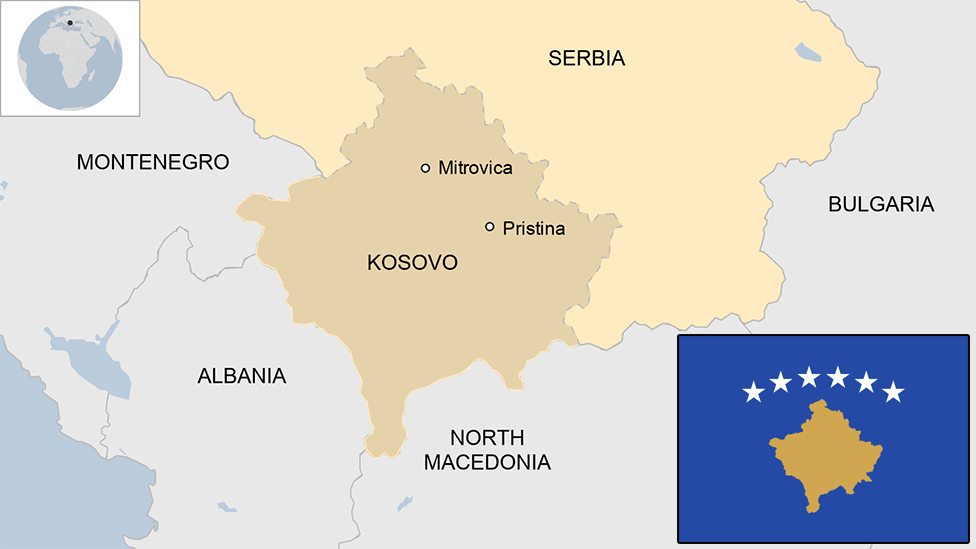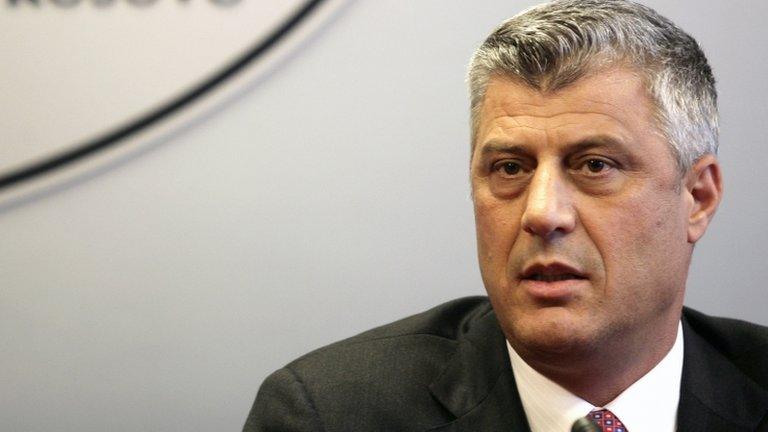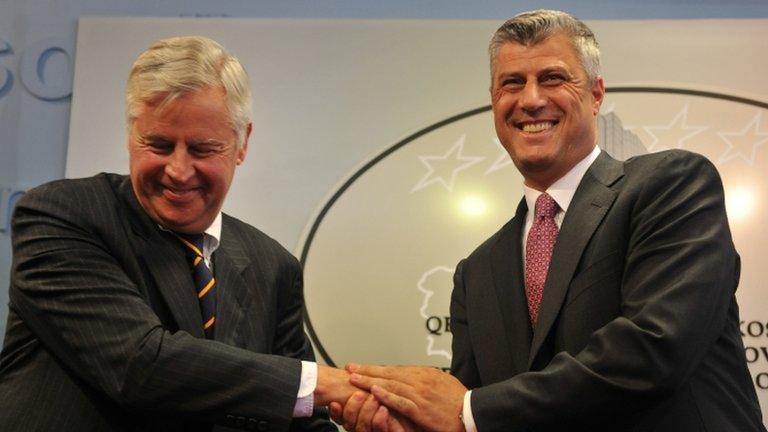Kosovo: EU aid for law and order criticised by auditors
- Published

Kosovars opposed to talks with Belgrade clashed with police in Pristina a week ago
The EU law and order mission in Kosovo is inefficient and the territory remains plagued by organised crime and corruption, European auditors say.
EU help for Kosovo's police and judiciary "has had only modest success", says the Court of Auditors, whose job is to scrutinise EU spending.
Per capita, Kosovo is the biggest recipient of EU aid in the world.
Serbia - which lost control of Kosovo after a war and Nato bombing in 1999 - does not accept its independence.
EU foreign policy chief Catherine Ashton and US Secretary of State Hillary Clinton will visit Kosovo's capital Pristina on Wednesday, as well as the Serbian capital Belgrade. They were meeting Bosnian leaders on Tuesday.
In a statement on Tuesday, external, the European Court of Auditors (ECA) said Kosovo's judiciary "continues to suffer from political interference, inefficiency and a lack of transparency and enforcement".
It also highlighted "important shortcomings" in witness protection and lamented the failure to extend the rule of law to northern Kosovo, where minority Serbs loyal to Belgrade reject Pristina's authority.
The ECA says that from 1999 to 2007, Kosovo received 3.5bn euros (£2.8bn; $4.5bn) in donor assistance, two-thirds of which came from the European Commission and EU governments.
From 2007 to 2011, EU assistance for the rule of law in Kosovo totalled about 1.2bn euros. It was channelled through two EU programmes - the Instrument of Pre-Accession (IPA) and policing mission called Eulex.
Obstacles
The ECA acknowledged that rule of law in Kosovo started from a low base, following the 1999 conflict.
"Nevertheless, the audit found there were significant areas where better management by the EEAS [European External Action Service] and Commission could have made EU assistance more effective," it said.
EU governments seconded insufficient and unqualified staff to Eulex, and for too short periods, the ECA said, and co-operation between the EU police agency Europol and Eulex "is subject to legal restrictions".
Kosovo is recognised as independent by more than 90 states, including the US and 22 of the EU's 27 members.
Tension between Kosovo's ruling ethnic Albanian majority and remaining ethnic Serbs has resulted in violence in recent years, notably along the northern border with Serbia.
EU leaders granted Serbia "candidate status" at a summit in Brussels in June - a milestone in Belgrade's bid to join the bloc. But the EU says Serbia's dispute with Kosovo remains an obstacle to membership.
Earlier this month, Kosovo's Prime Minister Hashim Thaci had talks with his Serbian counterpart Ivica Dacic in Brussels - the first direct political contact between the two sides since Kosovo proclaimed independence in 2008.
- Published28 June 2023

- Published19 October 2012

- Published10 September 2012
